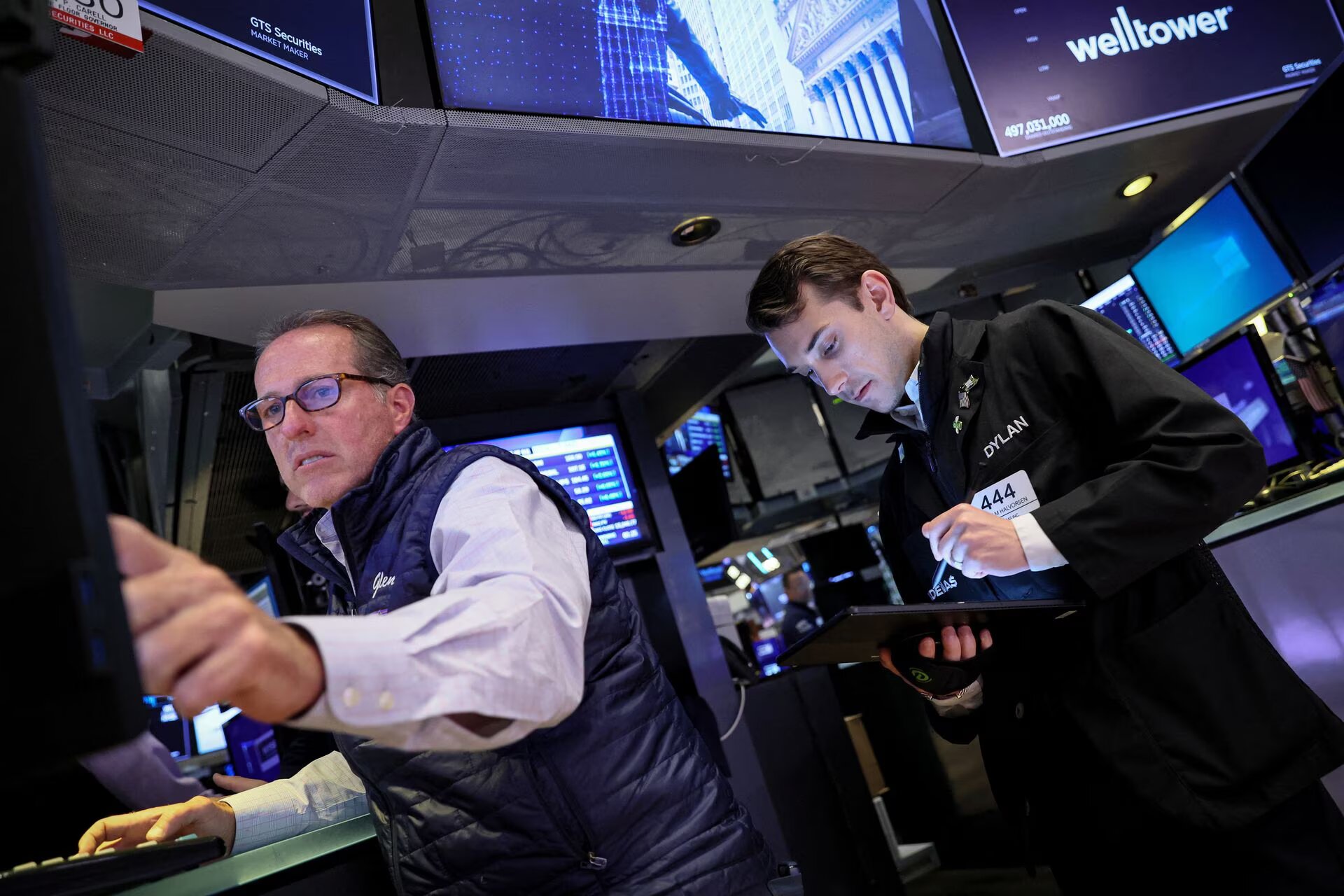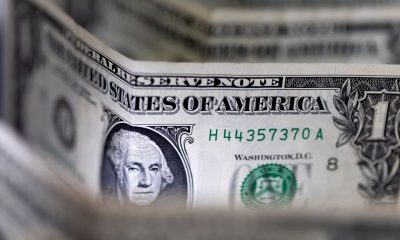Stock Markets
Investors on guard for market stress as Fed signals more hikes ahead

A hawkish message from the Federal Reserve amid a robust stock market rally is presenting investors with a conundrum: how to maintain exposure to rising equities while also guarding against the possible upheavals tighter monetary policy can bring.
The central bank left rates unchanged on Wednesday, as widely expected, but surprised some markets by signalling that borrowing costs will likely increase another half a percentage point by the end of this year as it reacts to a still-strong economy and a slower decline in inflation. Traders’ expectations for peak rates moved higher after the announcement.
Many investors believe an additional 50 basis points in rate increases – should the Fed deem them necessary – is by itself unlikely to stop a rally in U.S. stocks that has seen the S&P 500 rise 24% from last year’s lows. The central bank has already raised rates by 500 basis points since last year and is widely seen to be near the end of its rate hiking cycle.
But some are growing worried that tighter monetary policy is increasing the chances of ructions in the financial system similar to the crisis that saw several high profile bank collapses this year and sparked weeks of financial market volatility.
While the U.S. economy has been largely resilient – the banking system aside – investors have cast a wary eye on areas that may be particularly vulnerable as easy money dries up. Among the potential weak spots are commercial real estate, where a wave of defaults could have repercussions for banks and the broader economy, as well as other credit market sectors.
“The risk of pushing further here without giving things a little more time is that you run the risk of things breaking,” said Josh Emanuel, chief investment officer at investment management firm Wilshire. “I’m starting to get concerned that there’s a growing risk of a credit crunch.”
At the same time, Emanuel said it was “dangerous” to be underweight equities, which have rallied on dissipating recession fears and excitement over developments in artificial intelligence. As a result, he is staying away from assets that could be hit hard if market stress suddenly increases, such as small cap stocks.
The S&P 500 edged up 0.1% on Wednesday after shuffling between gains and losses. Bond yields, which move inversely to prices, inched higher. The S&P 500 is up 15% this year, while the Nasdaq has gained 30%.
James St. Aubin, chief investment officer at Sierra Investment Management, has been adding to equity positions during the rally but plans to reverse that stance if the trend starts to change. He remains on guard for further stresses in the banking system, which he believes can be exacerbated by higher for longer rates and an inverted yield curve, making lending less profitable for banks.
“The longer the rate curve stays inverted the more pressure it puts on the banking system because it’s a very unprofitable place to be,” he said.
A similar sentiment came from DoubleLine Capital CEO Jeffrey Gundlach, who told CNBC that “if the Fed follows the path that they’re talking about, … they are going to break something.”
He recommended increasing allocations to high-quality bonds while reducing stock holdings, noting that rising yields have made bonds cheaper and more attractive to income-seeking investors.
Mark Heppenstall, chief investment officer of Penn Mutual Asset Management, believes a burgeoning stock market rally could loosen credit conditions, threatening to exacerbate consumer prices – an undesirable outcome for the inflation-fighting Fed.
“The appreciation in equities that we’ve seen recently, some of that enthusiasm may have the impact of having the Fed becoming more active with tightening if we continue,” he said.
Of course, there is little guarantee that higher rates will end up cracking something in the economy – or that such an event, if it were to occur, would deal a catastrophic blow to stocks. The S&P 500 is up 14% from a low reached after the banking crisis in March.
Josh Jamner, investment strategy analyst at ClearBridge Investments, believes investors will soon start focusing more on fundamentals such as company earnings rather than macro concerns such as monetary policy and inflation.
“If things like AI are impacting earnings expectations, we think that will flow through in a more meaningful way because the macro backdrop is more steady,” he said.
“After having done 500 bps in a year… another 25 or 50 won’t be the key determinant for the economy,” he said.
Stock Markets
Suburban Propane director Logan sells $139k in shares
Stock Markets
Stock market today: S&P 500 closes lower, but posts big weekly win
Stock Markets
TD Bank promotes Laura Nitti to retail market president role

 Forex4 years ago
Forex4 years agoForex Today: the dollar is gaining strength amid gloomy sentiment at the start of the Fed’s week

 Forex3 years ago
Forex3 years agoUnbiased review of Pocket Option broker

 Forex3 years ago
Forex3 years agoDollar to pound sterling exchange rate today: Pound plummeted to its lowest since 1985

 Forex4 years ago
Forex4 years agoHow is the Australian dollar doing today?

 Cryptocurrency4 years ago
Cryptocurrency4 years agoWhat happened in the crypto market – current events today

 World3 years ago
World3 years agoWhy are modern video games an art form?

 Commodities3 years ago
Commodities3 years agoCopper continues to fall in price on expectations of lower demand in China

 Economy3 years ago
Economy3 years agoCrude oil tankers double in price due to EU anti-Russian sanctions

























